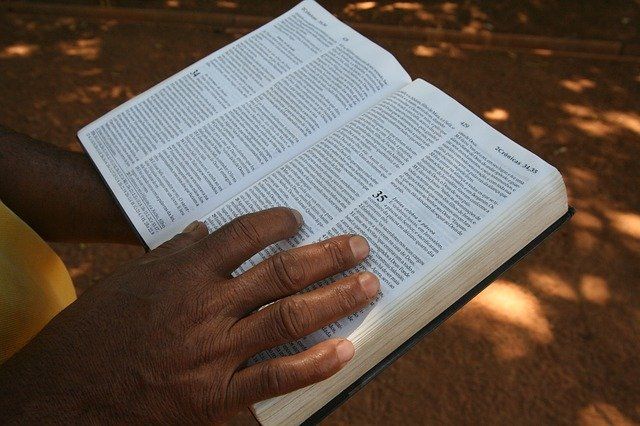One of the most influential post-war philosophers was Jean-Paul Sartre (1905-1980). He and Simone de Beauvoir, his chief mistress (he had many), influenced the thinking of millions – most of whom have never heard of them.
De Beauvoir was the high priestess of the Feminist movement, and her writings were its ‘bible’. It was Sartre and his circle who saw drugs as vehicles to achieve a state of transcendence.
Man was seen as creating his own essence – defining himself, as Sartre put it. Man, he said, has ‘no destiny but the one he will forge on this earth’.
Again, according to Sartre, ‘Life is nothing; it’s up to you to give it meaning – and value is nothing else but the meaning that you choose’.
Pure freedom?
It was axiomatic for Sartre and de Beauvoir that man could exist in a state of pure freedom.
As Kirsten Birkett puts it: ‘The insistence on personal freedom, to have no restriction on my self-expression, my sexuality, my lifestyle, my career choice, is probably the foremost ethic of the modern Western world’.
Society has reaped the bitter harvest of this godless philosophy, as multitudes decide for themselves what is right and what is wrong. This is viewed as freedom – freedom from restraint and ‘traditional morality’.
But this road leads only to debauchery – as illustrated vividly in the life-style of Sartre, de Beauvoir and their companions.
This raises practical questions. Are drug-addicts free? Are alcoholics and inveterate gamblers free? Are those who dabble in spiritism and the occult free, or are they walking in a spiritual minefield?
Is sexual promiscuity, with its attendant health risks, freedom? Is total selfishness consistent with freedom – or does it trample on the freedom of others? Where can we find an alternative and authentic definition of freedom? What does the Bible say about it?

Bondage to sin
Terms like ‘freedom’ and ‘liberation’ imply previous bondage. And the Bible makes it plain that man is a fallen, sinful creature, held fast in the grip of sin.
It depicts him in spiritual and moral slavery, ‘taken captive by Satan’ (2 Timothy 2:26). Those who spurn God’s law and fancy themselves free, do not realise that Satan has them by the throat.
Before men and women find salvation, they walk ‘according to the course of this world’ – in the world’s manner of thinking and living. The devil blinds the minds of unbelievers so that they are moulded by the spirit of the world (Ephesians 2:2).
Without Christ, we walk in chains. We live under the ‘dominion’ of sin as its willing bond-slaves (Romans 6:14).
Proverbs 5:22-23 declares: ‘His own iniquities entrap the wicked man. And he is caught in the cords of his sin’. Man’s fancied freedom is a delusion, no matter how much he philosophises about it.
He is free to act only in accordance with his fallen nature. When the prodigal son left home ‘freely’ for the far country of self-indulgence, he acted strictly in harmony with his sinful nature.
The heady freedom of those first few months soon declined into dreadful bondage – physically and spiritually he was sold into slavery. The Bible consistently sees the sinner in need of liberation.
What man cannot do
Fallen man is pervasively corrupt. All his faculties have been contaminated (depraved) by sin. This does not mean he is utterly depraved like a demon – the image of God remains. But his nature is distorted by sin.
Furthermore, man cannot change his character. The question in Jeremiah 13:23 is pertinent: ‘Can the Ethiopian change his skin or the leopard its spots? Then may you also do good who are accustomed to do evil’.

Over and over, the Bible stresses our inability to reform our fallen nature. Unless we are ‘born again’ we ‘cannot see the kingdom of God’ (John 3:3). Those words of Christ are simply a statement of fact.
The things of the Spirit of God – the truths of God’s Word – are foolishness to man as he is by nature. He can only know and believe them as he is enabled by the Holy Spirit (1 Corinthians 2:14).
Once a man realises this, he is more likely to cast himself on the mercy of God, than if he fondly believes he can restore himself.
By nature man is ‘dead in trespasses and sins’ – mentally and physically active, perhaps, but completely dead in relation to God. Unequipped for life, and unprepared for death, he lives with ‘no hope and without God in the world’ (Ephesians 2:1,12).
It is abundantly clear from Scripture, and painfully obvious from experience, that nothing short of a miracle can radically and permanently alter man’s condition in the sight of a holy God.
The ‘new birth’ is that miracle. Salvation is all of grace. Man can add nothing to it. It is the gift of God.
True freedom
True freedom is found only in Christ. Only he can set us free. But with him, we walk in freedom.
Jesus Christ came to break the chains of sin – and Satan’s strangle-hold upon the soul – and set the prisoners free. He was sent ‘to heal the broken-hearted, to proclaim liberty to the captives, and the opening of the prison to those who are bound’ (Isaiah 61:1). He has ‘led captivity captive’ (Psalm 68:18).
He said plainly: ‘if the Son makes you free, you shall be free indeed’ (John 8:36).
True freedom means that ‘we walk according to his commandments’ (2 John 6), for if we love Christ we will keep his commandments (John 14:15).
God’s commandments are in no way burdensome. They are, in fact, the laws of liberty and happiness. In proportion as men break those laws, they become enslaved and miserable. Just look at our present society if you doubt my word!
In love and grace, Jesus calls us in the gospel to rest and freedom and peace. Before his cross, where he fully paid the penalty for sin, we may stand with broken and contrite hearts – knowing our sins forgiven and our conscience cleansed.
Knowing also that we are for ever free to live to the glory of God.






